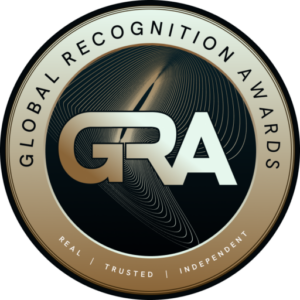Table of Contents
Imagine putting extra effort into a project, exceeding expectations, and delivering outstanding results—only to receive no acknowledgment. No appreciation, no recognition, nothing.
This happens more often than it should, and over time, it leads to lower motivation and disengagement.
People perform better when they feel valued, and companies that focus on how to reward employees see higher engagement and productivity. Success relies on more than strategy; it depends on a motivated workforce.
A 2024 Gallup study revealed that when the number of employees receiving weekly recognition doubles, productivity rises by 9%.
For a company with 10,000 employees, this can lead to a $92 million increase in output. Recognition has a direct impact on performance.
When employees feel appreciated, they are more likely to stay committed and contribute at a higher level.
Small actions such as verbal acknowledgment, handwritten notes, or structured reward programs create a workplace where employees feel valued.
Companies that prioritize rewarding employees stand out. The Global Recognition Awards highlight businesses that make employee appreciation a core value.
These awards recognize organizations that actively cultivate a culture of recognition. Businesses that establish strong recognition programs strengthen team morale and improve employee retention. Employees are drawn to workplaces where their contributions are appreciated.
Understanding how to reward your staff helps businesses keep top talent, boost productivity, and build a positive work environment.
Structured recognition programs, ongoing appreciation, and performance-based rewards contribute to long-term success.
Companies that embrace these practices create workplaces where employees feel motivated to do their best.
Make 2025 the Year Your Team Gets Recognized
Apply now and give your employees the recognition they truly deserve.
Why Rewarding Employees Matters
Employees who feel appreciated contribute to a stronger workplace. A 2024 study by Reward Gateway found that 91% of HR professionals agree that recognition programs improve retention. A well-structured reward system does more than boost morale—it strengthens the business.
Recognition That Makes a Difference
Imagine two employees. One consistently delivers great work but receives little acknowledgment.
The other gets regular recognition—whether through a shoutout in a meeting, a personalized reward, or a small bonus. The second employee is far more likely to stay engaged and motivated.
Employees who feel valued experience higher morale, better teamwork, and a more positive work environment. A simple thank-you or meaningful reward keeps them connected to their work.
Productivity Gains from Employee Rewards
Acknowledging employees’ efforts encourages them to perform at their best. Blackhawk Network’s 2024 research found that 75% of employees say recognition programs increase their loyalty. When employees know their contributions matter, they put in greater effort.
Well-designed rewards—whether public recognition, growth opportunities, or incentive programs—drive better results. Employees work harder when they see that their efforts have a direct impact.
Retaining Employees Through Meaningful Rewards
Employee turnover is costly, with replacement expenses often reaching twice the person’s annual salary. Creating a culture of recognition helps businesses retain their workforce.
When employees feel appreciated, they are less likely to leave for other opportunities. Companies that reward employees experience lower turnover rates and greater engagement.
Attracting Top Talent with a Rewarding Culture
A workplace known for rewarding employees will naturally bring in high performers. Salary matters, but so does a work environment where contributions are acknowledged.
Companies like Google and Salesforce consistently rank as top places to work because they understand the value of recognition. Employees stay longer and perform better when they know their work is appreciated.
Building a culture of recognition strengthens a business from within. Rewarding employees creates a workplace where people feel motivated, engaged, and eager to contribute.

17 Ways to Reward Employees
Recognizing employees for their contributions helps maintain motivation, productivity, and retention. A generic “Employee of the Month” certificate may not have the same impact it once did.
Employees now look for meaningful rewards that align with their needs and career goals. If you’re looking for ways to reward employees, here are 17 strategies to consider.
1. Awards
Participating in an awards program is a clear and effective way to recognize employees for their contributions while fostering motivation and job satisfaction.
Recognition reinforces a positive workplace culture and encourages continued excellence across various roles.
Leadership awards highlight individuals who mentor, guide, and inspire their teams, ensuring strong leadership that drives the company forward.
Equally important is teamwork, particularly in customer support. Global Recognition Awards offers customer service recognition to employees who consistently deliver outstanding client support and maintain high service standards.
Innovation and strategic thinking are key to business growth. Marketing awards recognize employees who develop creative campaigns or contribute to impactful branding efforts.
Similarly, celebrating a company’s overall success through top business awards not only builds pride among employees but also strengthens its position in the industry.
Diversity and inclusion are also essential to a thriving workplace. Our women in business awards acknowledge the contributions of female leaders and professionals, encouraging greater representation in decision-making roles and fostering a more inclusive environment.
Finally, understanding how to win awards can enhance a company’s chances of receiving industry recognition, further solidifying its reputation and success.
Pro Tip: Encourage employees to nominate peers for awards. This fosters camaraderie and boosts engagement.
2. Non-monetary perks
Time is one of the most valuable resources, and giving employees more control over it can be a game-changer.
A flexible schedule allows staff to work when they’re most productive, whether that’s early in the morning or late at night.
Some companies have taken this a step further by offering unlimited paid time off, trusting their teams to balance work and rest effectively.
Other simple yet powerful ways to reward employees include:
- Allowing remote or hybrid work options
- Giving employees their birthdays off (because no one wants to work on their special day)
- Offering mental health days to reduce burnout
- Providing extended vacations as a loyalty reward
3. Professional Development Opportunities
One of the best ways to reward employees is by investing in their professional development. Covering the cost of courses, certifications, or industry conferences shows that a company values long-term growth over short-term results. And it’s a win-win—employees sharpen their skills, while businesses benefit from a more knowledgeable workforce.
Some effective ways to reward employees through development include:
- Sponsoring degrees, certifications, or skill-building courses
- Providing access to online learning platforms like LinkedIn Learning or Coursera
- Sending employees to industry events and covering travel costs
- Pairing team members with mentors or career coaches
4. Personalized recognition and appreciation
Nothing feels better than a genuine, thoughtful thank-you. While bonuses are appreciated, personalized recognition often has a lasting impact. The key is to make it meaningful—something more than a generic “Great job!” email.
Examples of personalized employee rewards include:
- Giving a public shoutout during a team meeting or company newsletter
- Presenting a custom trophy or plaque for major achievements
- Handwriting thank-you notes (yes, old-school, but highly effective)
- Gifting something based on personal interests, like books, concert tickets, or experiences
Pro Tip: Keep a digital log of employee accomplishments so you can refer to them in future recognitions.
5. Team-building activities and experiences
Team-building activities create stronger workplace connections. A 2024 TeamStage survey found that 63% of leaders saw better team communication after introducing these initiatives. Encouraging employees to interact in a relaxed setting fosters trust and collaboration.
Company outings, creative workshops, and group challenges offer enjoyable ways to bring employees together.
Activities like escape rooms or community service projects allow teams to work toward a common goal.
Hosting a team lunch to celebrate a project’s completion also reinforces appreciation while strengthening relationships. Selecting activities that align with employee interests makes the experience more meaningful.
6. Wellness programs and health incentives
A workplace that promotes health and wellness creates a better environment for employees. Offering gym memberships, meditation sessions, or wellness stipends provides tangible ways to encourage self-care.
Supporting mental well-being with therapy app subscriptions, counseling services, or mental health days helps employees feel valued beyond their work contributions.
Wellness programs work best when employees feel comfortable using them without hesitation.
When leadership normalizes discussions about work-life balance, participation increases, and the benefits become more noticeable.
7. Career advancement and mentorship programs
A high salary might attract employees, but career development is what keeps them. If you want to reward your staff in a meaningful way, consider investing in their growth. Here’s how:
- Internal Promotions: Employees shouldn’t feel like they need to leave your company to move up. A well-structured internal promotion system encourages ambition and rewards dedication.
- Mentorship Programs: Pairing employees with experienced mentors provides invaluable guidance. This structured support system helps employees navigate challenges and prepares them for leadership roles.
- Leadership Training: Not everyone is a born leader, but with the right training, employees can develop strong management skills. Companies that offer leadership development programs empower employees to take on bigger responsibilities with confidence.
- Career Roadmaps: Every employee has unique goals. Personalized career planning ensures that employees feel valued and see a future within the company.
8. Profit sharing and equity options
When employees have a financial stake in the company’s success, they’re more invested in its performance. Profit-sharing and equity options aren’t just incentives; they’re a way to align employee goals with the company’s vision.
- Stock Options & Equity: Offering employees shares in the company gives them a direct interest in its growth. This long-term reward encourages commitment and fosters an ownership mindset.
- Performance-Based Profit Sharing: Employees contribute to the company’s success, so why not let them share in the rewards? A profit-sharing model ensures that top performers feel valued and motivated.
- End-of-Year Bonuses: While traditional, bonuses remain one of the most appreciated rewards for employees. Tying bonuses to company performance creates a direct link between effort and financial gain.
- Vested Stock Options: A structured vesting schedule encourages employees to stay with the company longer, reducing turnover and increasing stability.
Pro Tip: Offer milestone-based stock vesting to keep employees engaged over time.
9. Peer-to-peer recognition programs
Praise from leadership is great, but acknowledgment from colleagues feels just as rewarding.
When employees feel appreciated by their peers, they’re more likely to stay engaged and motivated. Here’s how you can implement peer-to-peer recognition:
- Digital Recognition Platforms: Many companies now use tools that allow employees to recognize each other for achievements, whether big or small. Platforms like Bonusly and Kudos make peer appreciation easy and rewarding.
- Employee-Nominated Awards: Let employees vote on standout performances within the team. Being recognized by colleagues adds authenticity to the reward.
- Encouraging a Culture of Gratitude: Simple shoutouts in meetings, internal newsletters, or even Slack channels create an atmosphere of appreciation.
- Rewarding Both Givers and Receivers: Employees who actively recognize others should also be rewarded, reinforcing the importance of appreciation.
10. Exclusive VIP perks and experiences
If you really want to make your employees feel special, offer rewards that they wouldn’t normally buy for themselves. VIP perks make employees feel valued in a way that’s both exciting and aspirational.
- Access to Exclusive Events: Concerts, sporting events, and industry conferences are unique ways to reward employees.
- Premium Memberships: Dining clubs, airline lounges, and private coworking spaces elevate an employee’s experience beyond traditional perks.
- Meet-and-Greet Opportunities: Arranging interactions with top industry leaders or influencers can be both rewarding and career-boosting.
11. Surprise gifts and unexpected bonuses
Who doesn’t love an unexpected gift? Surprise rewards create moments of excitement and show employees that their hard work is noticed.
- Curated Care Packages: Thoughtful collections of snacks, office gadgets, or wellness products create a personal touch.
- Mystery Rewards: Offering an unknown but exciting prize adds an element of gamification to rewards.
- Personalized Surprises: Gifting employees something related to their hobbies—like concert tickets for a music lover or a book for an avid reader—makes the reward feel truly special.
12. Gamification and friendly competitions
Work doesn’t have to feel like a grind. When employees can track progress, earn points, and engage in friendly competition, motivation skyrockets.
Gamification is a powerful way to reward employees by making achievements more tangible. Leaderboards that showcase top performers, point-based recognition programs where employees can exchange points for rewards, and workplace challenges tied to performance milestones create an environment where employees feel driven to excel.
Whether it’s a sales contest, an innovation challenge, or a fitness competition, adding game elements to the workplace makes work more exciting while encouraging productivity.
13. Childcare and family support benefits
A company that recognizes employees as people—not just workers—creates loyalty and trust. Supporting employees in their personal lives leads to greater engagement and a stronger sense of commitment.
Childcare assistance, whether through stipends, on-site daycare, or emergency backup care, allows working parents to focus on their jobs without constant worry.
Flexible parental leave policies that go beyond the legal minimum show that a company values employees’ well-being during major life changes.
Offering tuition reimbursement or stipends for school supplies helps employees invest in their children’s future, making them feel that their company cares about their success inside and outside the office.
14. Community involvement and charitable giving
Employees increasingly want to work for companies that care about the world. Supporting charitable giving and volunteer programs boosts morale while making a difference.
- Paid Volunteer Time: Allowing employees to take time off to work with charities benefits communities and increases job satisfaction.
- Donation Matching: If an employee donates to a cause, matching their contribution shows the company’s commitment to their values.
- Company-Wide Service Days: Organizing events where teams work together for a charitable cause fosters camaraderie and social impact.
15. Tech and home office upgrades
Employees do their best work when they have access to high-quality tools. For remote and hybrid teams, a well-equipped home office is essential.
Companies that provide stipends for ergonomic chairs, standing desks, noise-canceling headphones, and other productivity-enhancing tools show that they value employee comfort and efficiency.
Upgrading company-issued devices, from laptops to smartphones, ensures that employees can work without technological limitations.
For remote workers, subsidizing internet or utility bills can be a game-changer, reducing the financial burden of maintaining a productive workspace.
Pro Tip: Provide home office stipends annually instead of just during onboarding.
16. Subscription and lifestyle perks
Work-life balance enhances daily life. Subscription-based rewards give employees access to perks they actually enjoy.
Streaming services, meal kit deliveries, and wellness apps can add convenience and entertainment to employees’ routines.
For remote employees, covering co-working space memberships provides flexibility and a professional alternative to working from home.
Travel discounts, exclusive retail offers, and entertainment perks make employees feel appreciated beyond their job responsibilities.
17. Custom career growth plans
Employees want to know they have a future within the company. A well-structured career development plan helps them see long-term opportunities and feel motivated to grow.
Personalized career roadmaps ensure employees receive training tailored to their skills and aspirations.
Assigning career coaches or mentors offers guidance that fosters professional development. Rotational programs that expose employees to different roles help them discover new career paths while strengthening their skills.
Internal promotions over external hires show that the company invests in its own people, reinforcing loyalty and long-term commitment.
Celebrate Your Team’s Success with an Award
Apply today to spotlight your top performers and inspire excellence!

Creating a Workplace Where Employees Feel Valued
Finding the right way to reward employees can boost engagement, productivity, and retention.
Thoughtful recognition—whether through flexible perks or career development—helps create a workplace where employees feel valued and motivated.
Companies that prioritize appreciation see stronger teams, and exploring the most famous awards in various industries offers useful insights into what makes recognition meaningful.
Companies that tailor recognition programs to individual needs foster a more loyal and high-performing workforce.
Personalized rewards, peer-supported recognition, and experience-based incentives are gaining popularity.
Businesses that adapt to these changes strengthen employee commitment. If you want to contribute to shaping workplace recognition, now is a great time to apply to be a judge and help set new standards for excellence.

Jethro Sparks
Founder of Global Recognition Awards
Related posts
Ready to take your business to the next level?
Apply today and be a winner



